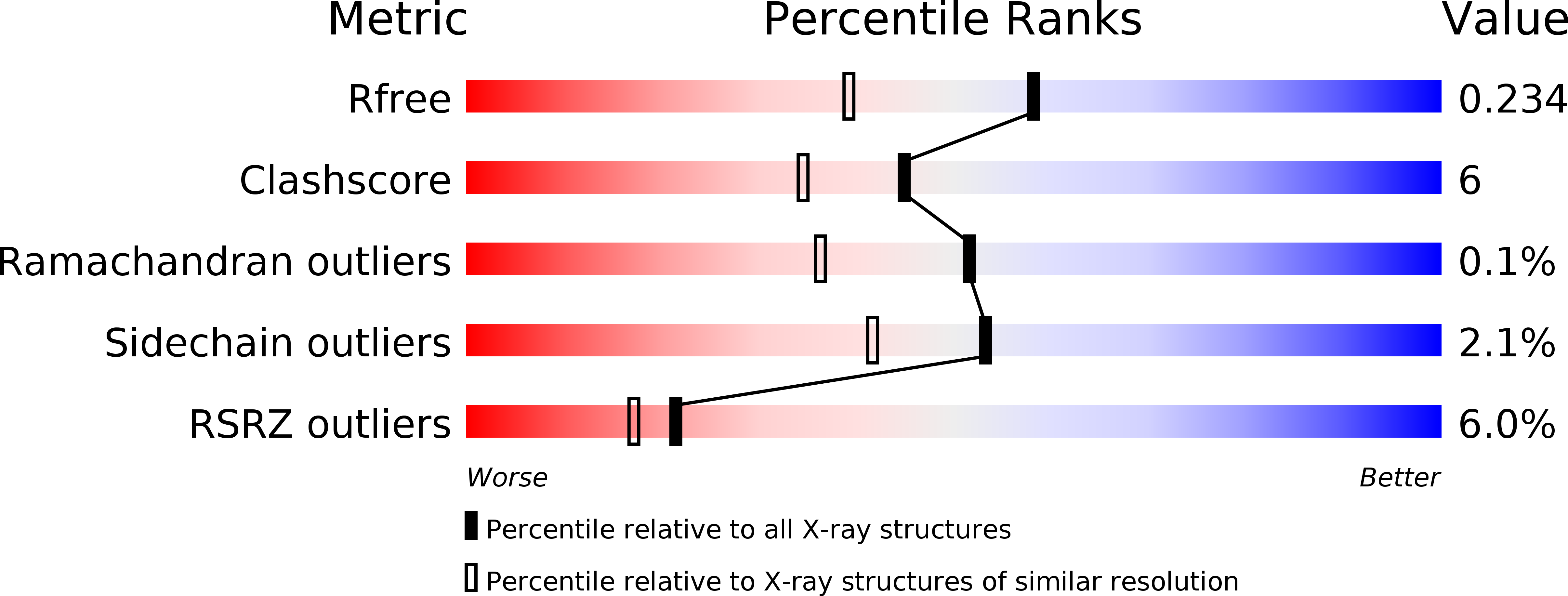Structural and Mutational Studies of Anthocyanin Malonyltransferases Establish the Features of BAHD Enzyme Catalysis
Unno, H., Ichimaida, F., Suzuki, H., Takahashi, S., Tanaka, Y., Saito, A., Nishino, T., Kusunoki, M., Nakayama, T.(2007) J Biol Chem 282: 15812-15822
- PubMed: 17383962
- DOI: https://doi.org/10.1074/jbc.M700638200
- Primary Citation of Related Structures:
2E1T, 2E1U, 2E1V - PubMed Abstract:
The BAHD family is a class of acyl-CoA-dependent acyltransferases that are involved in plant secondary metabolism and show a diverse range of specificities for acyl acceptors. Anthocyanin acyltransferases make up an important class of the BAHD family and catalyze the acylation of anthocyanins that are responsible for most of the red-to-blue colors of flowers. Here, we describe crystallographic and mutational studies of three similar anthocyanin malonyltransferases from red chrysanthemum petals: anthocyanidin 3-O-glucoside-6''-O-malonyltransferase (Dm3MaT1), anthocyanidin 3-O-glucoside-3'', 6''-O-dimalonyltransferase (Dm3MaT2), and a homolog (Dm3MaT3). Mutational analyses revealed that seven amino acid residues in the N- and C-terminal regions are important for the differential acyl-acceptor specificity between Dm3MaT1 and Dm3MaT2. Crystallographic studies of Dm3MaT3 provided the first structure of a BAHD member, complexed with acyl-CoA, showing the detailed interactions between the enzyme and acyl-CoA molecules. The structure, combined with the results of mutational analyses, allowed us to identify the acyl-acceptor binding site of anthocyanin malonyltransferases, which is structurally different from the corresponding portion of vinorine synthase, another BAHD member, thus permitting the diversity of the acyl-acceptor specificity of BAHD family to be understood.
Organizational Affiliation:
Institute for Protein Research, Osaka University, 3-2 Yamada-oka, Suita, Osaka 565-0871, Japan.















